The Rocha pear marketing campaign is underway in Portugal; a season so far marked by a high demand that far exceeds the supply, significantly reduced by the weather, as International Sales Manager Carla Belandria explains. "In Portugal, there is a total of about 10,000 hectares devoted to Rocha pears which yielded 243,000 tons in 2022. However, this year the harvest is down to just 134,000 tons."
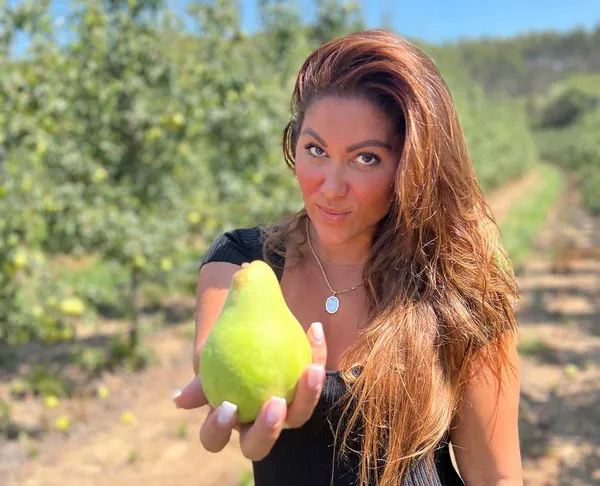
The unfavorable weather conditions have also had an impact on this season's calibers. In fact, the Iberian Peninsula's pome fruit production as a whole has been hit by this, although sales have not been affected.
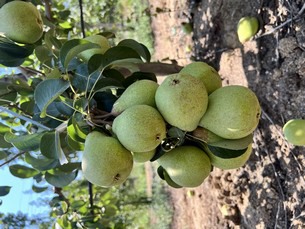
"The calibers I usually work with are 60-65 mm, but these have been in short supply this year, and our customers, including an Italian group that buys for a supermarket chain in Austria, are accepting 55-60 mm calibers." However, "while last year a 6 kg box of calibers 60-65 was priced at 7.8 Euro, this year the same box of calibers 55-60 is priced at 12 Euro," says Carla.
"Technicians already predict a good harvest this year"
In 2003, the European Union acknowledged the unique qualities of this pear discovered in 1836 by Pedro Antonio Rocha (from whom it takes its name) in Sintra, and granted it the protected designation of origin "Pera Rocha do Oeste". "The Rocha pear is a unique fruit. It is green to light yellow, with a bit of brown near the stalk, which in Portuguese is called carepa."
"I market the Rocha pear in various countries in Europe, America and Africa, but there is an area where it is still difficult to introduce it: the Middle East, precisely because of the carepa. Many consumers buy fruit based on its appearance and believe that the brown spot on the pear indicates that it is too ripe, but in reality, the carepa is a measure of the pear's sweetness; the more carepa, the sweeter it is; so we still have to work on communication and promotion in those countries."
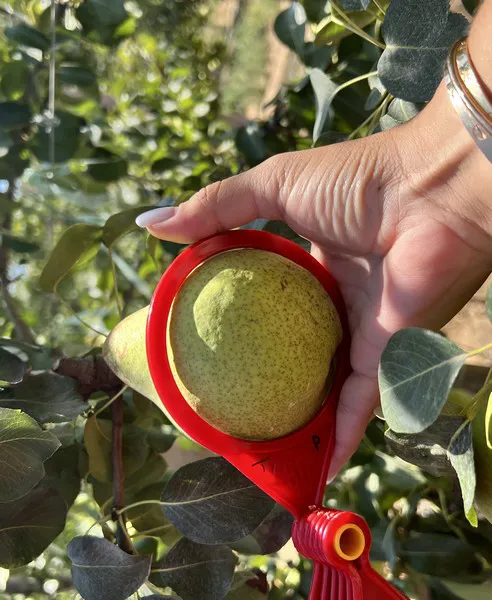
Sweetness is one of the distinguishing qualities of this emblematic pear from the Western region of Portugal managed by the Protected Designation of Origin, which oversees everything behind "this unique fruit", as Carla says, from its production to its harvesting, handling, storage and labeling.
"The Rocha pear is harvested in August, within a period of three weeks. The harvesting is carried out by hand, picking the fruit and tilting it slightly to avoid damage to the stalk that could lead to later claims. In just two hours after picking, the pears are stored in wooden or plastic bins, sorted by batches and stored in cold chambers with a controlled atmosphere at between 0 and 1 °C, where they are kept for 7 to 8 months, approximately until May of the following year."
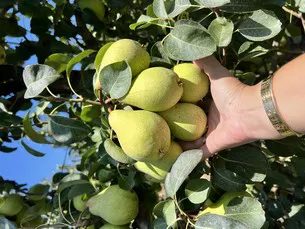
"We can find Gala or Golden apples in many countries (France, Spain, Germany, Italy...), but the Rocha pear is a variety that is only grown in Portugal, which makes it exclusive. It is extremely sweet, it contains vitamins A, B1, B2, C and E, it is a source of fiber and potassium, and it is also a powerful antioxidant. Its consumption is also recommended for babies."
"The list of the world's largest importers of Rocha pears includes Brazil, which is the number 1 destination; the United Kingdom, Morocco, Germany, Spain, Libya, Italy or France. Its consumption in Portugal is also significant, as each inhabitant consumes an average of 6.3 kg of pears per year."
"The demand for Portuguese pears is high," says Carla, "and every year Portugal has its production sold out before it is harvested." Right now, the pear orchards are beginning to bloom in the western region, and although it is still early to make forecasts, "technicians are already saying that this year we expect a good harvest, bigger than last year."
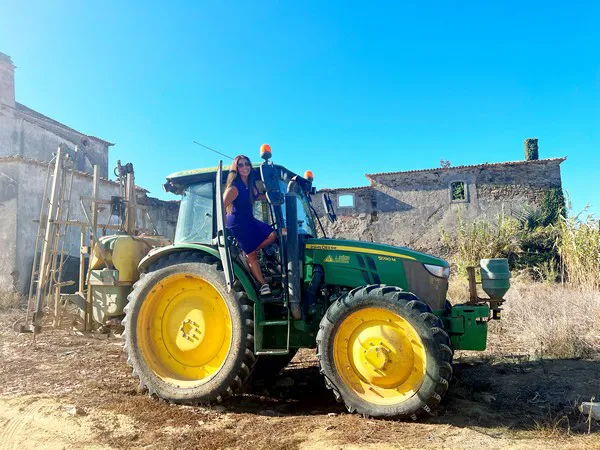
For more information:
Carla Belandria
International Sales Manager
Tel.: +34 625 42 71 03
https://www.linkedin.com/in/carlabelandria/
carlabegord@gmail.com
